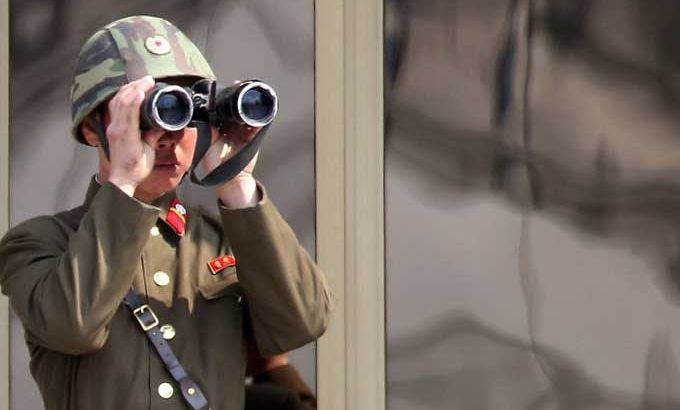N Korea said to move second missile to coast
Two missiles with estimated range of 3,000km reportedly moved to east coast, South Korea’s Yonhap news agency says.

North Korea has moved two medium-range missile to its east coast, South Korea’s Yonhap news agency reported, as the United States strengthened its Pacific missile defences amid escalating rhetoric from Pyongyang.
The report on Friday cited a senior military official as saying, “Early this week, the North has moved two Musudan missiles on the train and placed them on mobile launchers.”
South Korea’s Defence Ministry declined to comment on the report.
Earlier, when only one missile was reported, Seoul’s defence minister Kim Kwan-jin said it could reach a “considerable distance” but not the US mainland, telling legislators it “could be aimed at test-firing or military drills”.
Intelligence analysis quoted by Yonhap said the missile was believed to be a Musudan which has an estimated range of around 3,000km or more.
North Korea has been railing against US-South Korean military exercises that began in March and are to continue until the end of this month. The allies insist the exercises in South Korea are routine, but the North calls them rehearsals for an invasion and says it needs nuclear weapons to defend itself.
Early on Thursday the North Korean army said it had received final approval for military action against the US, possibly involving nuclear weapons.
“The moment of explosion is approaching fast,” the general staff said.
US precautions
A provocative missile test-fired into the sea over Japan is one scenario that analysts have said the North could choose to exit the crisis with a face-saving show of force.
|
“I think they have gone too far in their rhetoric and I am concerned that if by any misjudgement, by any miscalculations… this will have very serious implications.“ – UN chief Ban Ki-moon |
The North is not believed to have mastered the technology needed to miniaturise nuclear bombs enough to mount them on long-range missiles. Nor has it demonstrated that those missiles, if it has them at all, are accurate.
The White House said the US was taking “all necessary precautions” following the latest developments.
White House spokesman Jay Carney said: “What we’re seeing now is a familiar pattern of behaviour out of North Korea – regrettable but familiar.
“We’re monitoring both the actions taken by and the statements made by the North Korean leadership. And we’re also taking prudent measures to respond to that activity and to those statements,” Carney said.
The Pentagon announced that it will hasten the deployment of a missile defence system to the US Pacific territory of Guam to strengthen regional protection against a possible attack.
UN warning
United Nations Secretary General Ban Ki-moon said North Korea must rein in its threats, warning that any miscalculation could lead to an extremely grave outcome.
He told a news conference in Madrid that daily security and humanitarian reports from Pyongyang were “really alarming and troubling”.
“Nuclear threat is not a game, it is very serious,” Ban told reporters. “I think they have gone too far in their rhetoric and I am concerned that if by any misjudgement, by any miscalculations… this will have very serious implications.”
Meanwhile, the European Union called on Pyongyang to stop stoking tensions and re-engage with the international community. Russia’s foreign ministry termed the North’s neglect of UN resolutions as “categorically unacceptable”.
On Thursday, North Korea blocked access to its Kaesong joint industrial zone with South Korea for the second day running, and threatened to pull out its 53,000 workers in a reaction to the South’s airing of a “military” contingency plan to protect its own workers there.
The zone was shut on Friday for a scheduled North Korean holiday, with managers of the 123 South Korean companies in the complex warning they would have to close down operations in a matter of days unless the North lifted the ban on incoming raw materials and personnel.
The Unification Ministry said there were still 608 South Korean citizens in Kaesong on Friday, after 253 returned to the South.